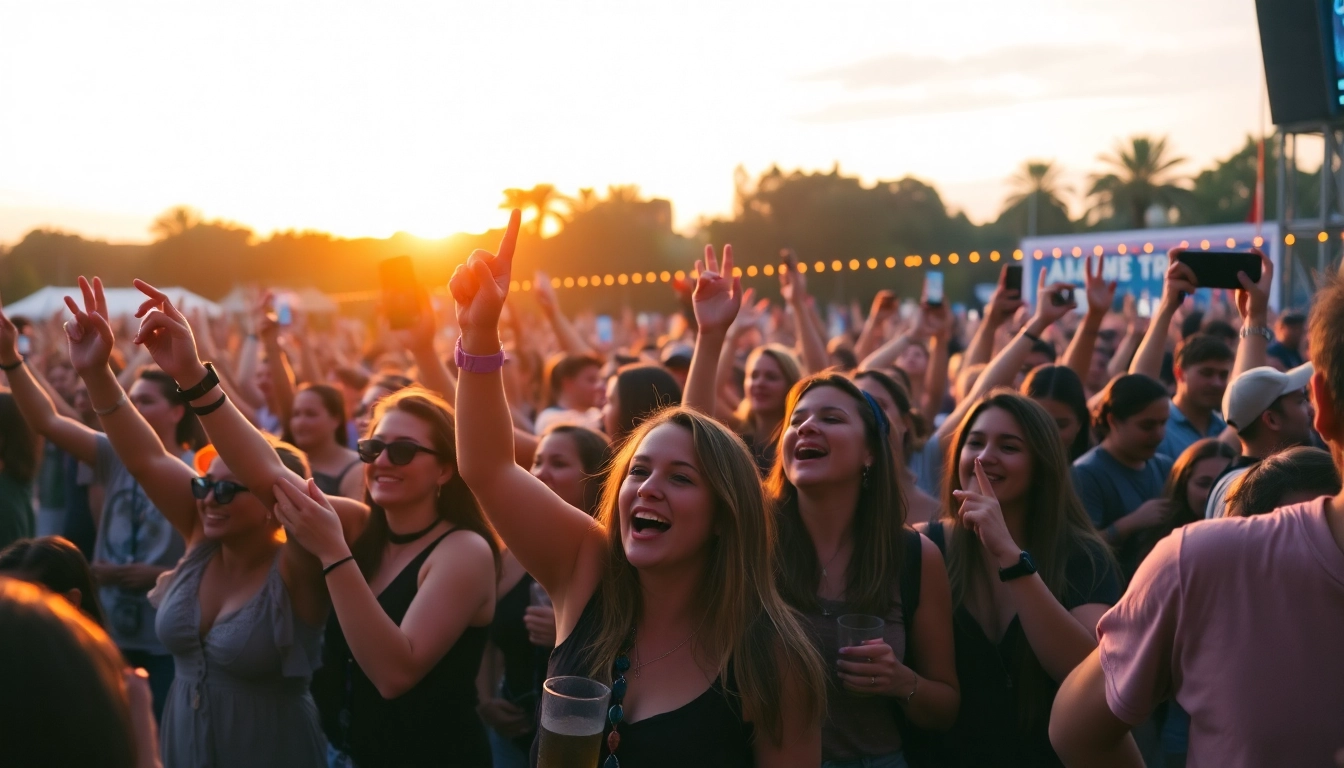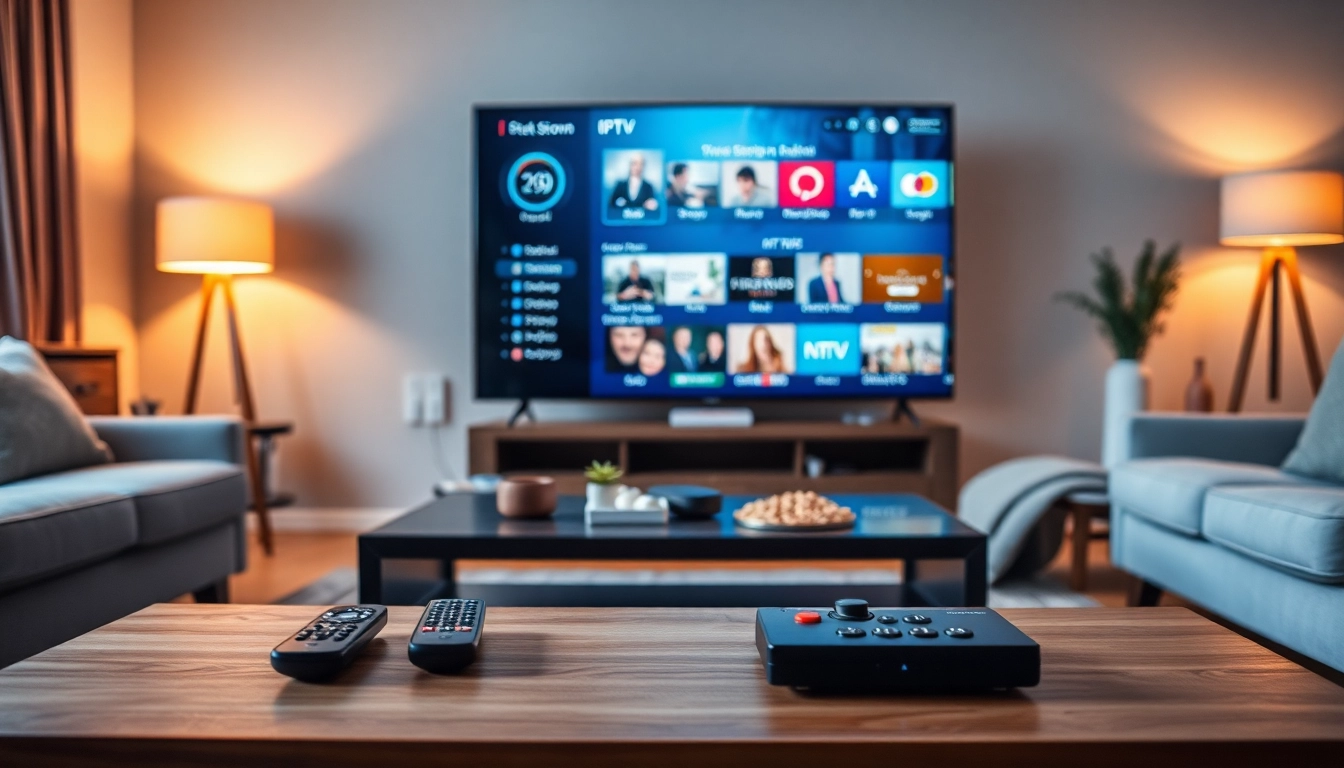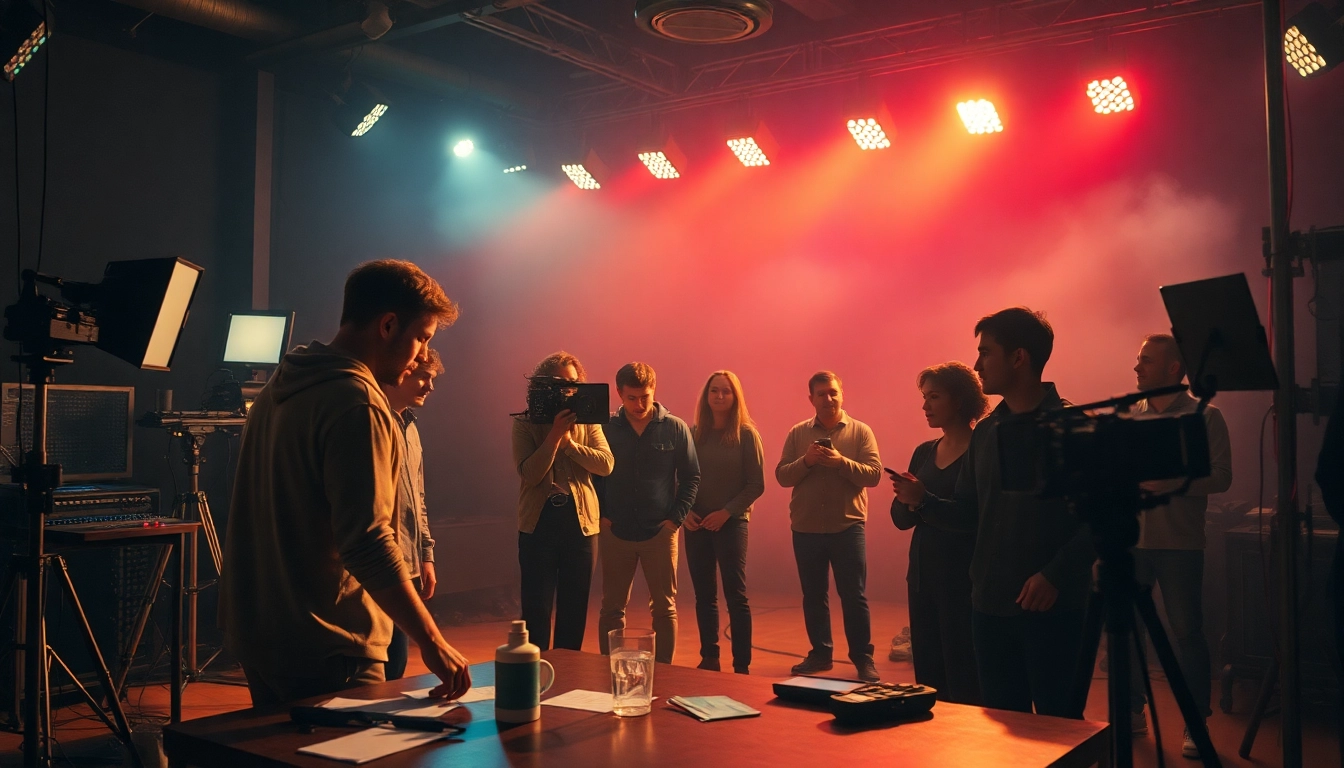Understanding the Passion of Live Music Fans
The Emotional Connection to Live Music
Live music transcends the ordinary experience of listening to a song; for many, it is an emotional journey that can evoke powerful feelings and create lasting memories. The palpable connection between the audience and performers during a live concert can be felt in the energy of the crowd, the ambiance of the venue, and the shared experience of listening to live music. Whether it’s the thrill of seeing a favorite artist perform hits or discovering new talent at a local venue, the emotional stakes are high.
This strong emotional connection is why many Live Music Fans attend concerts not just for the music itself, but for the holistic experience it provides. For them, live music is a form of escape, self-expression, and communion with like-minded individuals. The intensity of live performances can foster a sense of belonging and community that is often missing in our digital lives.
Demographics of Live Music Enthusiasts
Understanding who the live music fans are is crucial for artists, venue owners, and marketers alike. Recent surveys indicate that live music fans span a broad demographic spectrum, with variations in age, gender, and socio-economic status. Young adults aged 18-34 make up a significant portion of live concert attendees, but there are dedicated fans across all age groups.
According to studies, millennials and Gen Z are more likely to value experiences over material possessions, which explains their inclination towards live music events. Furthermore, gender representation in live concert attendance has seen a shift, with many events now experiencing a balanced demographic of male and female attendees. Understanding these dynamics helps in tailoring marketing strategies and planning events that cater to this diverse audience.
Common Traits of Dedicated Live Music Fans
While live music fans may come from varied backgrounds, they share a number of common traits that distinguish them. Firstly, passion is a defining characteristic; these individuals often follow their favorite artists and genres intensely, attending multiple shows and curating playlists that reflect their musical tastes. Additionally, they exhibit loyalty, often participating in fan clubs or communities that celebrate their musical interests.
Moreover, dedicated fans demonstrate a strong social aspect to their engagement with music. Many use platforms like social media to connect with other fans, share experiences, and discuss concerts they have attended. This behavior is essential in creating a vibrant community around live music, as fans exchange insights, recommendations, and emotional responses that foster deeper connections to the music and each other.
Creating Engaging Experiences for Live Music Fans
Strategies to Enhance Fan Engagement
Engagement starts long before the first note is played at a concert. Artists and event organizers can enhance the fan experience through a variety of strategies. Pre-event engagement through social media promotions, behind-the-scenes content, and influencer collaborations can heighten anticipation among fans. Offering fan experiences like meet-and-greets or exclusive listening sessions helps to strengthen the connection between artists and their audience.
During the event, interactive experiences—such as live polling on setlists, fan cams, and personalized merchandise—can enhance the concert-goer’s participation. Post-event engagement is equally important. Sending follow-up surveys to gather feedback, sharing recap videos, and offering exclusive content helps keep the connection alive even after the concert ends, encouraging fans to attend future events.
Incorporating Technology for a Unique Experience
In today’s digital age, integrating technology into live music experiences is becoming increasingly vital. Mobile apps that provide real-time updates, personalized schedules, and augmented reality experiences can greatly enhance fan engagement. For instance, the use of AR can allow fans to immerse themselves in unique visuals during performances, making each concert not just a listening event, but a multi-sensory experience.
Moreover, technology can facilitate accessibility for all fans. For those who are unable to attend in person, live streaming platforms offer an alternative, enabling audiences to experience the concert from anywhere in the world. This inclusivity allows artists to reach wider audiences and provides opportunities for enhanced revenue streams.
Best Practices for Event Planning
Successful live music events rely on meticulous planning and execution. Identifying the right venue is crucial—it should resonate with the artist’s brand and be accessible for the target audience. Additionally, logistics such as sound quality, seating arrangements, and security measures play a significant role in the overall experience.
Engaging with fan communities prior to the event can also inform better planning. Gathering insights about what fans desire in a concert can lead to innovative experiences that meet their expectations. Moreover, ensuring a responsive customer service approach, especially during ticket sales and at the event, is paramount in building trust and enhancing overall satisfaction.
Marketing to Live Music Fans Effectively
Understanding Consumer Behavior in Music Events
Marketing strategies for live music fans must be underpinned by a deep understanding of their behaviors and preferences. Studies show that fans are more likely to make purchasing decisions based on recommendations from friends or other fans. This means that word-of-mouth remains a powerful tool in marketing live music events.
Additionally, it is crucial to recognize that modern music consumers are increasingly research-oriented. They review artist bios, setlists from previous concerts, and promotional content before making decisions. Therefore, providing ample information and creating buzz around events through multiple touchpoints can successfully influence consumer behavior.
Leveraging Social Media to Reach Fans
Social media platforms serve as essential marketing tools for reaching and engaging live music fans. Platforms like Instagram, TikTok, and Facebook provide perfect vehicles for promoting events, sharing behind-the-scenes content, and interacting with fans. Engaging content—such as artist interviews, rehearsal footage, and live Q&As—can generate excitement and foster a sense of community.
Targeted advertising on social media allows promoters to reach specific demographics based on interests, listening habits, and online behaviors, increasing the chances of ticket sales. Implementing hashtags and encouraging user-generated content can further enhance organic reach and fan involvement, creating a steady buzz around upcoming events.
Collaborations with Influencers in the Music Scene
Influencer marketing has emerged as a key strategy for promoting live music events. Partnering with influencers who have established credibility and resonance within niche music communities can amplify outreach efforts. These collaborations can take many forms, including sponsored posts, giveaways, or even special event performances.
Influencers often have their own dedicated followers who trust their recommendations, making them invaluable for promoting live events. By crafting tailored campaigns that align with the influencer’s brand and style, event promoters can tap into new audiences and generate authentic interest in their concerts.
Challenges Faced by Live Music Fans and Solutions
Addressing Accessibility Issues
Accessibility remains a significant barrier for many live music fans. This includes physical accessibility for individuals with disabilities, as well as financial access for those with limited budgets. Venues should prioritize ADA-compliant facilities and offer tiered pricing options to accommodate diverse audiences.
Additionally, providing information about accessibility options during the ticket purchasing process, and ensuring that staff are trained to assist individuals with special needs, can enhance the overall concert experience for everyone. Engaging with local communities to understand specific needs and preferences can also help tailor solutions effectively.
Navigating Ticket Purchasing Obstacles
The ticket purchasing process can often deter fans, especially when it involves complicated systems or inflated prices from resellers. To combat this, event organizers should employ more transparent and user-friendly ticketing platforms. Implementing a fair ticketing policy and ensuring that predefined quotas are allocated for fans rather than scalpers can improve access.
Offering pre-sale opportunities to dedicated fan club members can also enhance the purchasing experience, ensuring that true fans have the chance to secure tickets. Regular communication with fans about ticket release dates and availability can reduce frustration and enhance the relationship between artists and their audience.
Connecting with Other Fans and Communities
Community building is a crucial aspect of enhancing the live music experience. Fans often seek connection with others who share their interests, and creating platforms or forums for this purpose can be invaluable. Online platforms, social media groups, and fan meet-ups help cultivate these interactions, strengthening the sense of community.
Events that incorporate fan experiences—such as pre-concert gatherings, merchandise exchanges, or shared playlists—can create opportunities for deeper connections among attendees. Such initiatives promote networking and friendships, ultimately making the live music experience more enjoyable and fulfilling.
Metrics to Measure Success in Engaging Live Music Fans
Tracking Engagement Rates
Measuring engagement rates is fundamental to understanding how effectively artists and organizers connect with their fans. This can include analyzing social media interactions, website traffic, and participation in promotional campaigns. Tools such as Google Analytics or social media insights can provide vital data regarding fan engagement patterns.
Monitoring these metrics allows for the adjustment of marketing strategies based on tangible results. High engagement rates often correlate with increased fan loyalty and repeat attendance, which are pivotal for successful long-term artist-fan relationships.
Analyzing Feedback from Fans
Feedback from fans can provide invaluable insights into their experiences and preferences. This can be collected through post-event surveys, social media polls, or direct communication via fan forums. Analyzing this feedback allows artists and organizers to understand what worked well and what could be improved for future events.
Incorporating fan feedback into the event planning process creates a sense of ownership and appreciation among attendees, fostering a more robust community. Recognizing and responding to fan feedback can also contribute to improving overall satisfaction and loyalty.
Measuring Attendance and Retention Rates
Attendance figures are a straightforward metric of success, but analyzing retention rates—the number of fans who return for future events—provides a deeper understanding of fan loyalty. Tracking the demographics of attendees over time can reveal patterns and help tailor future performances to better meet audience expectations.
Combining attendance data with fan feedback and engagement metrics allows artists and organizers to create a holistic view of their fan base, enabling more informed decisions to ensure continued growth and fan satisfaction.



